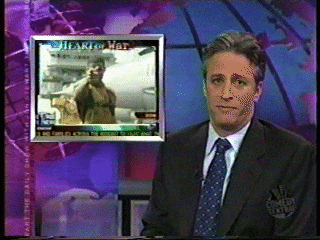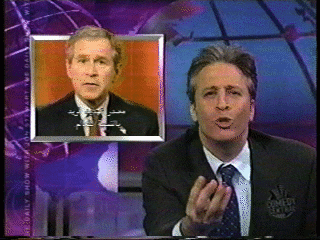This would almost be funny at this point if our Administration wasn’t in the process of following these imaginary WMDs over into Syria.
Now they’re saying it could take up to a year to find them. Or not.
Hmmm. I remember three months being too long to let the inspectors do their job. Now we’re supposed to wait a year or more for them to tell us if the U.S.’s official reasons for invading Iraq even exist?
Pressure to find weapons mounts
By Bryan Bender for the Boston Globe.
A month after the outbreak of war, arms control specialists and former United Nations weapons inspectors are increasingly critical of the Bush administration for its failure to substantiate prewar claims of a hidden weapons arsenal, the principal argument for going to war against Saddam Hussein…
Several thousand soldiers in Iraq are now dedicated to the US search, being run by the Defense Department. But so far the mission has been plagued by numerous false readings of suspected chemical and biological materials.
Washington’s credibility is being eroded further, according to arms specialists, by the continued refusal to include international participation in the search.
Some analysts say the Bush administration could build support for a lengthy, exhaustive search by immediately bringing in either the United Nations weapons inspectors who left Iraq before the war or other international specialists. The UN Security Council next week will discuss the possible resumption of its inspections in Iraq…
”They are not demonstrating much capability,” said David Albright, a former UN weapons inspector who is now president of the Institute for Science and International Security in Washington. ”It has been run somewhat incompetently. They have to bring the professionals in. They said the UN inspectors were bumbling idiots and can’t find anything. Now these guys are looking like bumbling idiots that can’t find anything.”
However, the United States has not indicated any willingness to accept UN help in the search. Joint Chiefs of Staff chairman Richard B. Myers said Tuesday that ”right now our searches are done under military control, and it’s not appropriate to add anyone to that equation.”
Other analysts say the failure to find weapons so far suggests there may be few to find.
”There will be less than we have been led to believe,” predicted Robert Einhorn, who was the assistant secretary of state for nonproliferation in the Clinton administration. ”There is a good chance that Iraq disposed of some weapons. There was no real security need to keep some of the junk they had stored up.”
If US military forces are unable to locate a ”smoking gun,” the specialists say, it will raise new questions about whether the UN weapons inspectors could have successfully contained the threat posed by the Hussein regime, without the need for an invasion. The inspectors returned to Iraq in November after a four-year absence, but left again in early March after the United States and Britain said Iraq had failed to meet its obligation to disarm.
”The case was made that there were a lot of weapons,” said Albright, the former inspector. ”To make its case, the Bush administration has to find a lot – not 20 chemical shells here, or a couple of drums there. If Iraq destroyed any incriminating evidence, people will say that the inspectors could have contained Iraq.”
Administration officials maintain that the search is still in its early stages and point out that at least a dozen suspected weapons sites have been identified and that most are still being investigated.
But some analysts say the slow progress of the search suggests that the US intelligence community widely misjudged the Iraqi weapons program.
”The fact that we haven’t found any yet seems to indicate that there were fewer weapons than the administration feared,” said Joseph Cirincione, a weapons specialist at the Carnegie Endowment for International Peace. ”It would be very difficult to hide a large, ongoing biological or chemical weapons production program [making] hundreds of tons of agents. Janitors who worked in these plants should be able to give us information.”
…Pentagon spokeswoman Victoria Clarke has sought repeatedly to ”manage expectations,” in her words, saying that the search process could take up to a year to complete.


